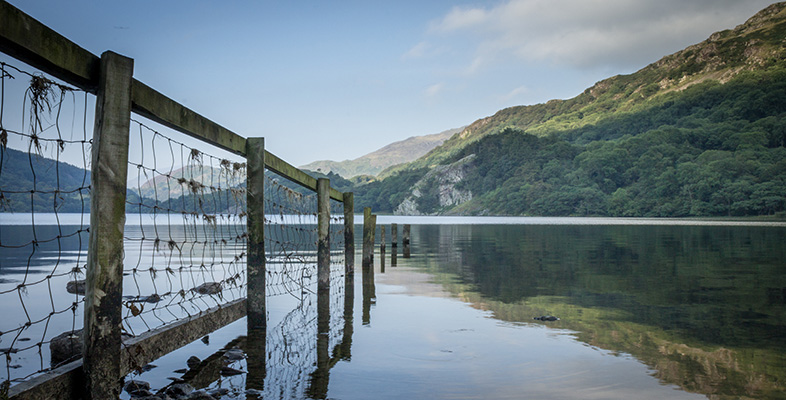Wales glossary
Wales glossary
Browse the glossary using this index
Special | A | B | C | D | E | F | G | H | I | J | K | L | M | N | O | P | Q | R | S | T | U | V | W | X | Y | Z | ALL
W |
|---|
Wakes WeeksTraditional factory holidays in Lancashire and Yorshire when all factories and businesses closed down at the same time. The timing varied from town to town. | |
Wallia puraThe areas of Wales not settled by Normans or English, remaining in the hands of the native Welsh. | |
Wars of the RosesCivil wars of the fifteenth century in England. | |
WEAWorkers’ Educational Association – provides classes in a wide variety of subjects for adult workers. | |
WealdWooded region of Kent and Sussex famous for its charcoal iron industry. | |
WeighsSee Wey (Weigh). | |
Welsh Calvinistic MethodistsSee Methodism. | |
Welsh Church Act (1914)Act of Parliament to disestablish the Anglican church in Wales from the Church of England. | |
Welsh Department of the Board of EducationFounded 1907. Gave Wales some control over the inspection and administration of schools. | |
Welsh Intermediate Education Act 1889Act of Parliament which resulted in the founding of a system of secondary education in Wales and consolidated the university college provision. | |
Welsh National MemorialLaunched by David Davies, MP, with a gift of £125,000 in 1910. Concerned with investigating social deprivation in Wales, especially to counter the high incidence of tuberculosis in Wales. | |
Welsh NotPiece of wood put around the necks of pupils who spoke Welsh in schools. | |
Welsh OfficeEstablished in April 1965 under Harold Wilson’s new Labour government, the Welsh Office was a central government department responsible for Welsh issues. The Secretary of State for Wales was its head. Its headquarters were in Whitehall, London. With devolution, its powers were largely transferred to the Welsh Assembly Government. | |
WelshryA community, within a royal shire, governed according to Welsh law. | |
Wesleyan MethodistsSee Methodism. | |
Wesley, John(1703–91) Leader of the Wesleyan Methodists. | |
Western VindicatorChartist newspaper published in Bath, 1839–40. | |
Wey (Weigh)Measure of coal, equal to about eight tons. | |
Wilkes, John(1727–97) Radical English politician and journalist, arrested by a general warrant for seditious libel in 1763. His case established the important principle that general warrants are illegal. | |
Wilkins, CharlesMerthyr ironmaster and historian. Wrote History of Merthyr Tydfil (1867), a source for the early history of the iron industry there. Also wrote History of the Coal Trade of Wales and History of the Iron, Steel, Tinplate and other Trades of Wales. | |
Williams, David(1738–1816). Radical political philosopher and Deist from Eglwysilan, Glamorgan; a native of the Caerphilly area of mid-Glamorgan. | |
Williams, EdwardSee Iolo Morgannwg. | |
Williams, EmlynWelsh actor and playwright. | |
Williams, Sir T. MarchantDied 1914. Barrister and writer. Born Aberdare. Coalminer’s son. Schoolmaster, stipendiary magistrate. | |
Williams, William (Pantycelyn)(1717–1791), born in Carmarthenshire: an important hymn-writer and leading figure in the Methodist movement in Wales. | |
Williams, W. LlewellynSon of tenant farmer from Llansadwrn. Liberal MP, lawyer, historian, supporter of Cymru Fydd. | |
Williams, Zephaniah(1795–1874). From Bedwellty, Monmouthshire, Williams was one of the leaders of the Newport Rising, 1839, in which he led the march from Nantyglo to Newport. With Frost, John, he was as a result convicted of treason but had his death-sentence commuted to transportation for life to Tasmania. With Frost, he was pardoned in 1856, but remained for the rest of his life in Tasmania. | |
Women’s Social and Political UnionA movement set up to campaign for women’s rights. | |
Woodstock, Treaty of (1247)Treatry stating that the Princes of Gwynedd were henceforth to hold their territories as feudal vassals of the English Crown. | |
Worcester, Treaty of (1218)Confirmed Llywelyn ab Iorwerth (Llywelyn Fawr/Llywelyn the Great) in possession of all his recent conquests. | |
Working Men’s AssociationEstablished in 1836 by William Lovett and Henry Hetherington. Initiated the Charter from which Chartism eventually took its name. Hetherington was a close friend of Hugh Williams of Carmarthen (the solicitor who defended participants in the Rebecca Riots, and a Chartist) and in 1837 Williams became Secretary of the W.M.A. branch in Carmarthen. In 1838/9 about 50 branches of the W.M.A. were started in the south Wales coalfield. The movement fought to secure rights for the industrial working class. | |
